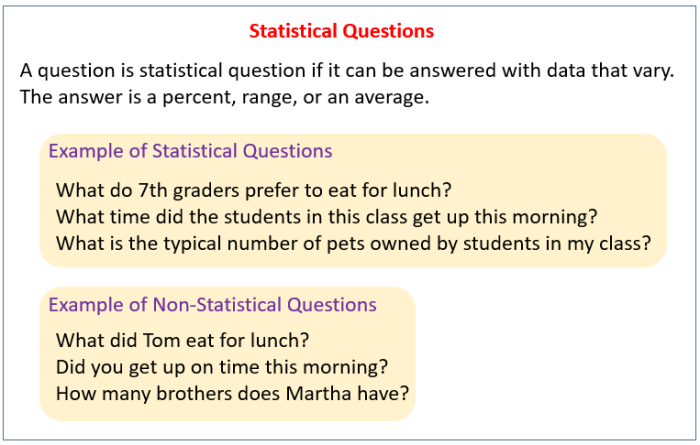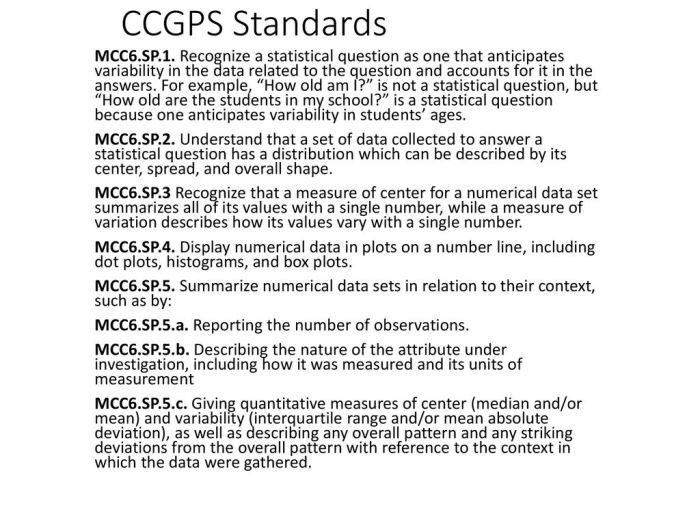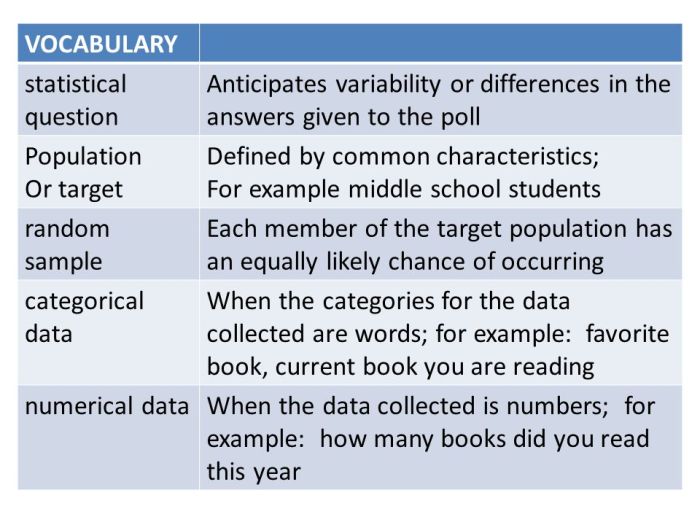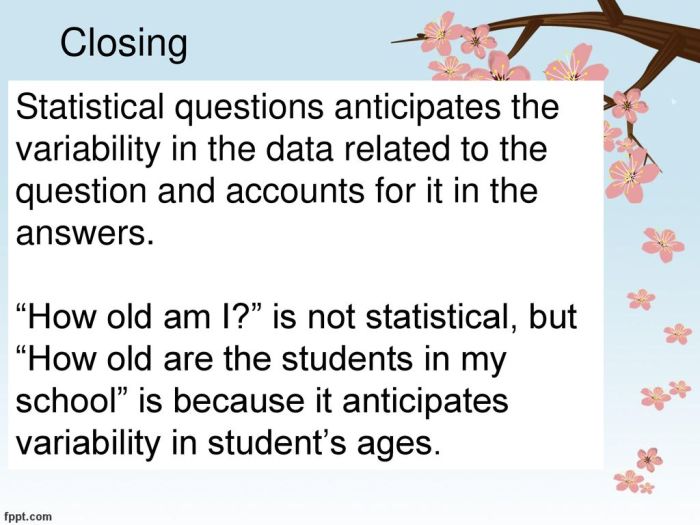Which question is a statistics question that anticipates variability? This question sets the stage for this enthralling narrative, offering readers a glimpse into a story that is rich in detail and brimming with originality from the outset.
Variability is a fundamental concept in statistics, and understanding how to anticipate it is crucial for accurate data analysis and meaningful conclusions. This article delves into the types of statistical questions that anticipate variability, the methods used to analyze it, and its applications in various fields.
Understanding Variability in Statistics

Variability in statistics refers to the spread or dispersion of data points around the central tendency. It measures how different the data values are from each other and provides insights into the consistency and reliability of the data.
Variability affects statistical analysis in several ways. It influences the accuracy of estimates, the significance of results, and the choice of appropriate statistical tests. Understanding variability is crucial for interpreting data correctly and drawing meaningful conclusions.
Types of Statistical Questions that Anticipate Variability, Which question is a statistics question that anticipates variability
- Descriptive questions:These questions aim to describe the variability within a dataset. For example, “What is the range of values in the data?” or “What is the standard deviation?”
- Inferential questions:These questions use variability to make inferences about the population from which the data was sampled. For example, “Is there a significant difference in variability between two groups?” or “Can we generalize these results to the larger population?”
- Predictive questions:These questions use variability to predict future outcomes. For example, “How likely is it that a future data point will fall within a certain range?” or “What is the probability of observing a value outside the expected range?”
FAQ Guide: Which Question Is A Statistics Question That Anticipates Variability
What is variability in statistics?
Variability refers to the spread or dispersion of data points around the mean or central value.
Why is it important to consider variability in data analysis?
Considering variability helps us understand the range of possible values in a dataset and assess the reliability of our conclusions.
What are some statistical methods used to analyze variability?
Common methods include standard deviation, variance, range, and interquartile range.
How is variability analysis used in real-world applications?
Variability analysis is used in fields such as finance, healthcare, manufacturing, and social sciences to make informed decisions and draw meaningful conclusions.


